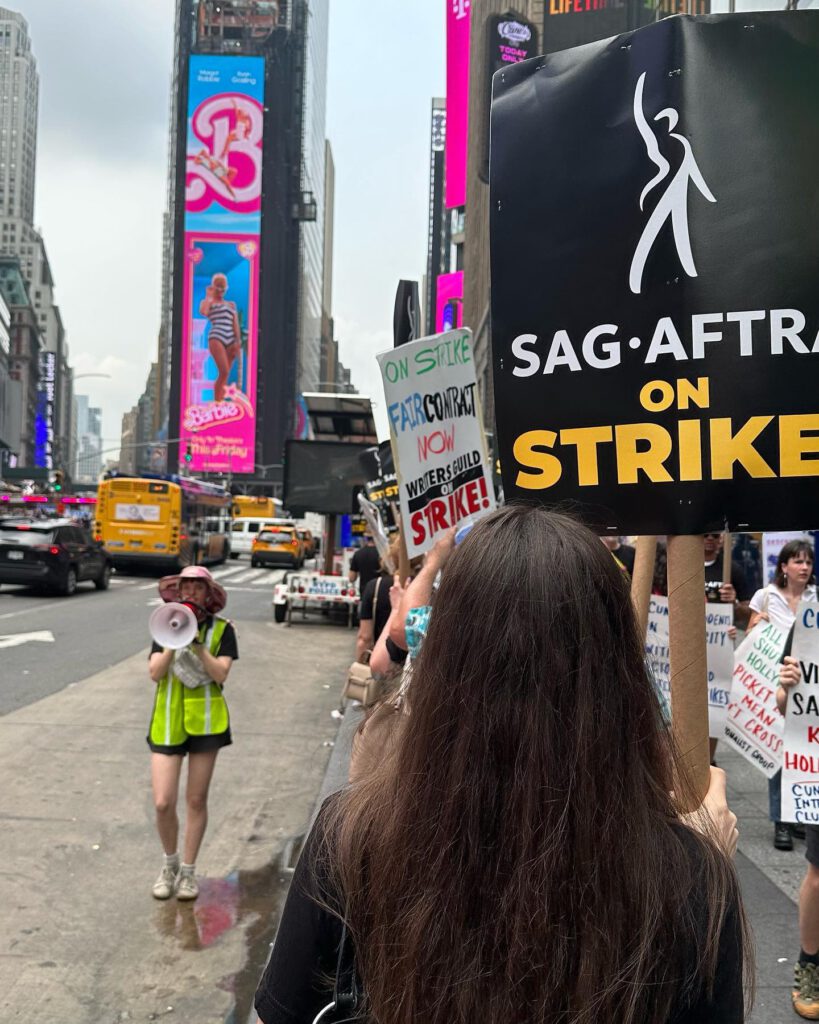Chaz Ebert and the Editors of RogerEbert.com strongly endorse SAG-AFTRA and WGA East and West and their strike. It is not a coincidence that the last time these two unions were on strike at the same time, one of the issues was the same. In 1960, the new technology of television was increasing the revenues of the movie studios and executives while the people who created the content were left out of these profits as they lost potential income from theatrical releases. Then-SAG President Ronald Reagan insisted on a fairer deal.
This time, there are two technologies threatening actors and writers. The first is already well-established. As with television back in 1960, this time it is streaming services siphoning off the income from movies and series with questionable accounting practices. The second is just beginning but already having an impact. It is AI (artificial intelligence). The studios are asking background actors (formerly called extras) to go from working several days for a few hundred dollars a day to coming in once to have their faces and bodies scanned so they can be inserted in films thousands, even millions, of times without payment or consent.
There is a lot of arcane language in the negotiations, with terms like AVOD, ESE, and HBSVOD. (New York Magazine has a very good explainer.) But the key point is that while a very few actors make a lot of money, most of the 160,000 members of SAG-AFTRA make a modest amount. The average, even with the astronomical salaries for the big stars, stands at approximately $40,000. The crucial cut-off to qualify for health care is $26,470 and many do not meet that minimum. WGA members make an average of $250,000 when they are working. But it is often a long stretch between jobs, and it is the payment for viewing of movies and series they have already written that keeps them going until the next project.
Meanwhile, the studio heads make even more than the biggest movie stars, many of them receiving hundreds of millions in cash and stock. It has been suggested that if each of them took a five or ten percent pay cut it would more than pay for what SAG and the WGA are asking.
These negotiations are about money and control. Writers and performers deserve to be paid for the value they create for the studios. But they are about more than that. We are critics. We see more movies that just about anyone else. We know how difficult it is and how much talent it takes to make the magic we look for every time we sit in a theater as the lights go down, or even when we fire up a streaming service.
The studios have to recognize that you get what you pay for, and that taking advantage of the talents who have made their CEOs multi-millionaires has to end. And that everyone can tell the difference between real stories that come from the heart and synthetic re-treads that come from algorithms. It is time for a fairer deal.











